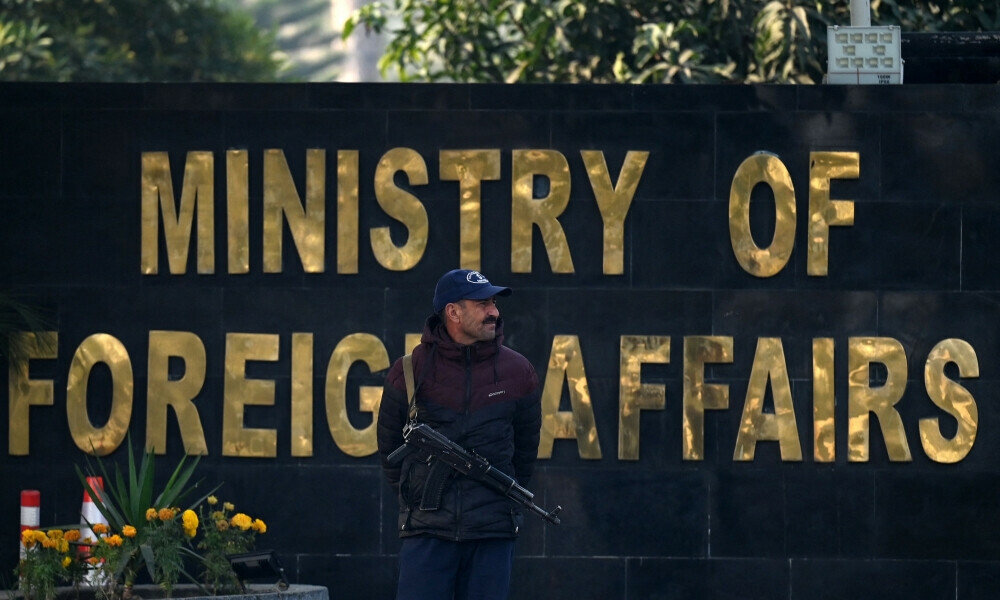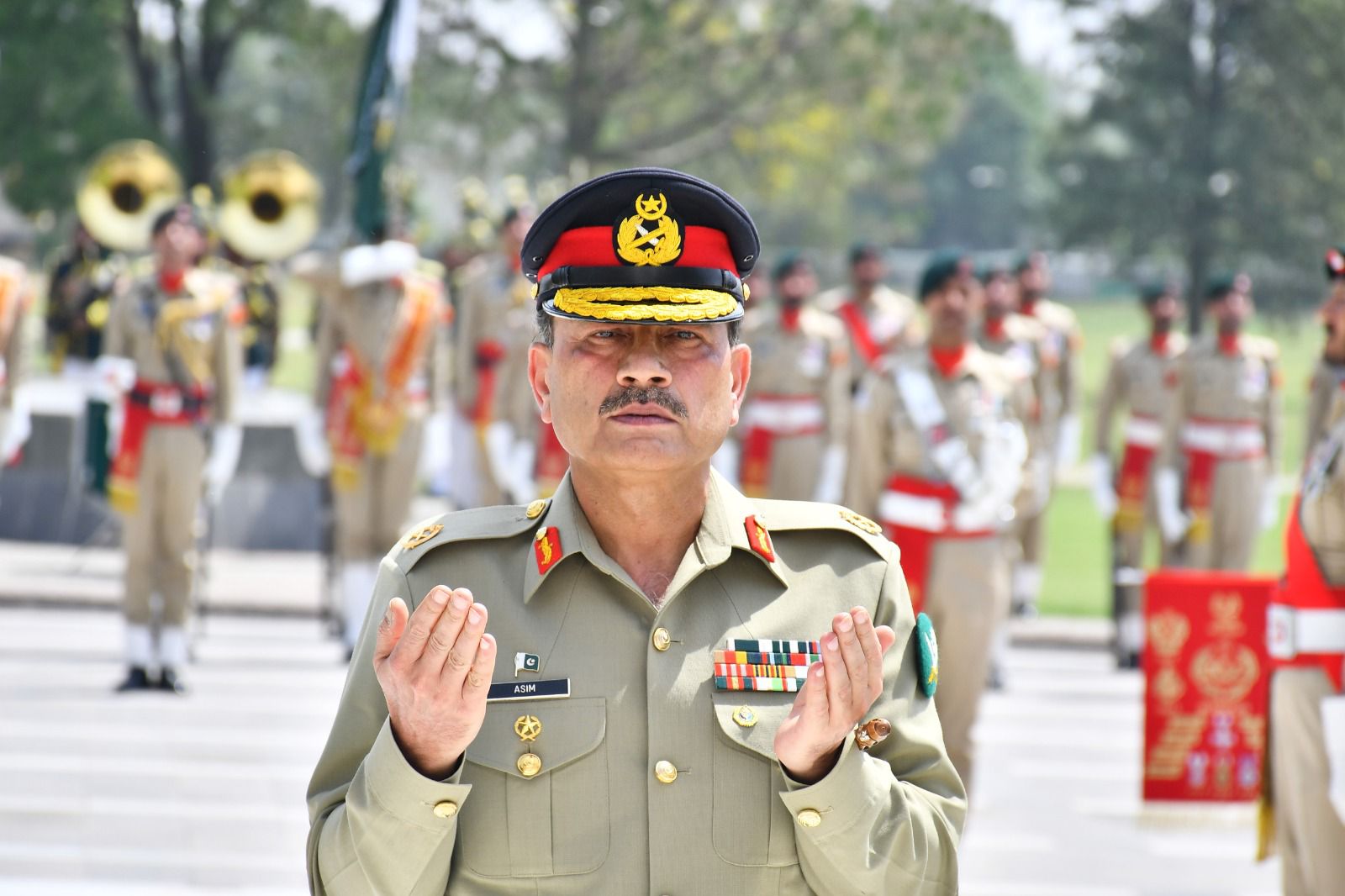Pakistan has strongly condemned the recent comments made by India’s National Security Adviser (NSA) Ajit Doval regarding the ongoing stalemate between Pakistan and India. The remarks, according to Pakistan, were not only misleading but also violated international norms of statecraft. In a Weekly Media Briefing held on Friday, Foreign Office (FO) Spokesperson, Ambassador Shafqat Ali Khan, termed Doval’s statements as distorted and tainted, emphasizing their far-reaching implications on regional peace and stability.
Ambassador Khan stressed that Doval’s comments were a deliberate attempt to mislead the public and portray Pakistan in a negative light. He further stated that such remarks violated the norms expected from a responsible state, especially in the context of international diplomacy. Khan made it clear that military aggression against a sovereign nation constitutes a grave violation of the United Nations Charter and international law.
“Rather than indulging in false narratives, India must accept the truth about the defensive actions taken by Pakistan,” Khan remarked. He pointed out that Pakistan’s Air Force had successfully downed six Indian fighter jets in self-defense, causing significant damage to other military targets. Khan emphasized that India’s actions in targeting civilian infrastructure instead of militant hideouts stood as a testament to their true intentions.
One of the central issues raised by Pakistan was the ongoing human rights violations in Indian Illegally Occupied Jammu and Kashmir (IIOJK). Ambassador Khan strongly condemned the continued killings of innocent civilians by Indian occupying forces, stating that these actions have been carried out with impunity. He called this grave situation a deep concern not just for Pakistan but for the entire international community.
Pakistan urged the international community to take note of these violations and hold India accountable for its actions in Kashmir, which have resulted in widespread human suffering. This issue remains at the forefront of Pakistan’s foreign policy, as it seeks to bring attention to the ongoing crisis in the region.
The Foreign Office spokesperson also addressed remarks made by former Foreign Minister Bilawal Bhutto-Zardari in a foreign media interview. Bilawal had expressed concerns regarding the conduct of certain state actors and suggested that some individuals of “particular concern” should be extradited for Confidence Building Measures (CBMs) with India. Ambassador Khan clarified that Bilawal’s comments were not aimed at any specific individual but rather at the conduct of state actors.
The clarification came in response to concerns raised by various media outlets regarding the implications of Bilawal’s statements. The Pakistani government reiterated its commitment to addressing security concerns in the region through diplomatic means and dialogue.
Ambassador Khan also touched upon the ongoing dialogue between Pakistan and Afghanistan to address cross-border terrorism, particularly the threat posed by the Tehrik-i-Taliban Pakistan (TTP). He stated that Pakistan remains in active communication with Afghan authorities at multiple levels to address this serious issue.
“The TTP poses a significant threat to Pakistan’s security. Pakistan hopes that Afghan authorities will recognize the gravity of this threat and take decisive action against terrorist groups operating from Afghan soil,” Khan emphasized. These discussions follow the Deputy Prime Minister’s visit to Afghanistan in April, which aimed to establish a common ground for cooperation in tackling terrorism and ensuring regional stability.
Responding to another query, the Foreign Office spokesperson highlighted the issue of Indian state-sponsored terrorism within Pakistan. Khan stated that India’s destabilizing role in the region, particularly its support for terrorist groups, has been exposed on numerous occasions. He reiterated Pakistan’s position that such actions threaten regional peace and security.
Khan further noted that Pakistan maintains strong strategic ties with China, often referred to as its “iron brother.” At the same time, Pakistan values its relationships with the United States and seeks balanced engagement with all its partners, based on mutual respect.
Pakistan is set to participate in the upcoming Shanghai Cooperation Organization (SCO) Foreign Ministers’ Meeting. Ambassador Khan confirmed that the Deputy Prime Minister, Dar, will represent Pakistan at the meeting. However, he made it clear that there are currently no plans for a bilateral meeting or handshake with India’s External Affairs Minister.
This participation underscores Pakistan’s ongoing commitment to multilateral diplomacy, even as tensions with India remain high. The SCO meeting offers a platform for Pakistan to engage with regional powers and address key security and economic issues.
The Foreign Office also addressed the ongoing concerns regarding the Indus Waters Treaty (IWT), which affects over 250 million people in the region. Ambassador Khan highlighted that the recent decision by the Court of Arbitration had further weakened India’s already de-legitimized position on the sensitive matter. The IWT remains a significant issue in the Pakistan-India relationship, with both countries having differing views on its implementation.
On the subject of economic cooperation, Ambassador Khan touched on the revival of Pakistan Steel Mills (PSM), which he referred to as a symbol of Pakistan-Russia friendship. He added that Pakistan is in constant contact with Washington to address trade tariffs and is hopeful for a positive outcome that will benefit both countries. This indicates Pakistan’s desire to enhance its economic ties with major global powers while addressing ongoing trade challenges.




